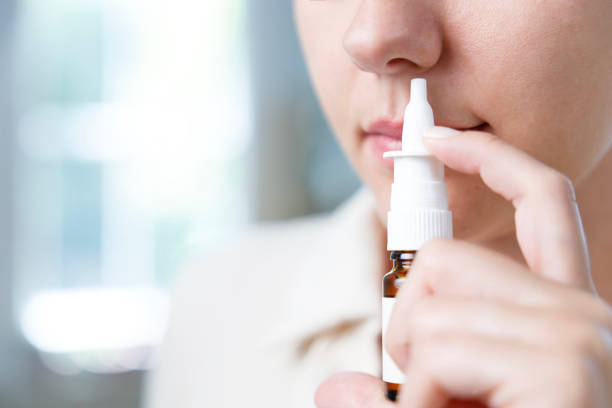USP Inhalation Suspension Preservative Testing
The USP Inhalation Suspension Preservative Testing is a critical analytical service designed to ensure the stability and safety of pharmaceutical products intended for inhalation or nasal delivery. This testing ensures that preservatives used in these formulations are effective, non-toxic, and do not interfere with product efficacy. Ensuring compliance with USP standards is essential for manufacturers seeking to protect patient health while maintaining the integrity of their products.
The primary focus of this service involves evaluating the preservative's ability to prevent microbial growth while ensuring that it does not negatively impact the drug’s stability, potency, or purity over time. The test method typically includes preparing a suspension according to USP specifications and incubating it under controlled conditions for extended periods (often up to 28 days) at various temperatures.
Our laboratory adheres strictly to USP Chapter 61, which outlines the detailed procedures and criteria. This includes ensuring that the test suspension remains stable under conditions that mimic real-world storage and handling practices.
Our team of experts uses advanced analytical techniques to monitor changes in preservative efficacy over time, including microbiological assays, chemical stability studies, and physicochemical evaluations. These tests are crucial for determining whether the preservative is effective at inhibiting microbial growth without compromising product quality.
| Test Parameters | Description |
|---|---|
| Microbial Growth Inhibition | Determine the preservative's effectiveness in preventing bacterial and fungal contamination over time. |
| Stability Induction Period | Evaluate how long the suspension remains stable under specified conditions before quality degradation occurs. |
| Physical Stability | Assess changes in particle size, sedimentation behavior, and other physical properties that could affect product performance. |
| Chemical Stability | Monitor chemical decomposition products to ensure they do not exceed acceptable limits. |
The results of these tests are critical for ensuring the safety and efficacy of inhalation suspensions. Compliance with USP standards is a legal requirement in many countries, including the United States, and failure to meet these criteria can lead to product recalls or regulatory action.
Applied Standards
- USP Chapter 61: Preservatives for Injections and Suspensions
- ASTM E2583-17 - Standard Practice for Stability Testing of Pharmaceutical Products Using Environmental Conditions that Differ from Recommended Storage Conditions
- IEC 62304 - Medical Device Software Lifecycle Process
The USP provides the foundational framework for our testing, but we also follow additional guidelines and best practices to ensure comprehensive evaluation. ASTM E2583-17 allows us to assess how different environmental conditions affect product stability over time, while IEC 62304 helps guide us in understanding the lifecycle of medical devices, including the importance of preserving product integrity.
Eurolab Advantages
Our laboratory offers several advantages when it comes to USP Inhalation Suspension Preservative Testing:
- Expertise and Experience: Our team has extensive experience in conducting complex pharmaceutical tests, ensuring accurate results.
- State-of-the-Art Facilities: We utilize cutting-edge laboratory equipment and technology for precise measurements and analyses.
- Compliance Assurance: We ensure that all testing adheres strictly to USP standards and other relevant international guidelines.
- Rapid Turnaround: Our efficient processes allow us to deliver timely results without compromising accuracy or reliability.
- Quality Reporting: Comprehensive reports are provided with detailed explanations of the test procedures, findings, and recommendations for improvement.
Our commitment to excellence ensures that our clients receive reliable data they can trust. This is crucial for maintaining regulatory compliance and ensuring product quality.
Quality and Reliability Assurance
- Laboratory Accreditation: Our facility is accredited by the EA, ISO 17025, and ISO 9001, ensuring that our testing processes meet international quality standards.
- Strict Calibration: All instruments are calibrated regularly to ensure consistent and accurate results.
- Data Integrity: Our systems safeguard data integrity through secure storage and robust validation protocols.
- Training and Certification: Our staff undergo continuous training and certification in the latest testing methodologies.
We are dedicated to maintaining high standards of quality and reliability, ensuring that every test conducted is accurate and repeatable. This commitment extends beyond our laboratory walls, encompassing all aspects of our operations from specimen receipt to final report issuance.





